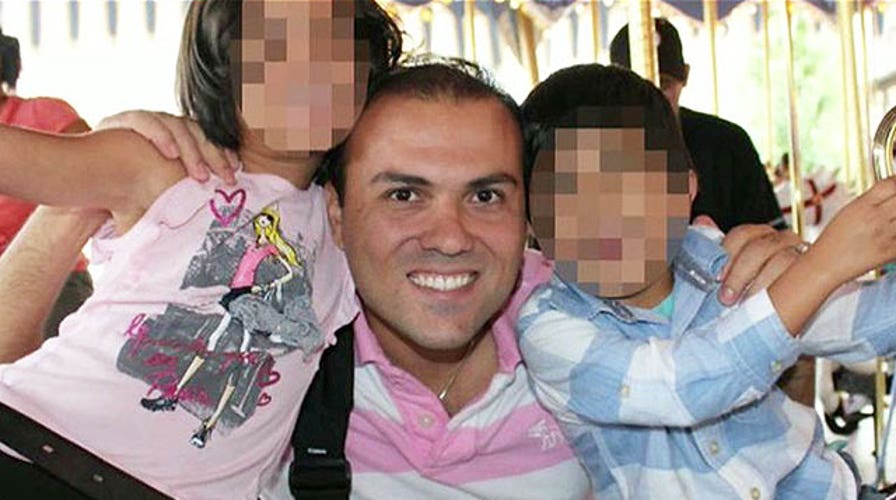Sekulow: WH betrayed American pastor jailed in Iran
Outrage after nuclear deal leaves Saeed Abedini behind
Amid growing outrage at the Obama administration’s determination to strike a deal with jihadist Iran that not only allows Iran to enrich uranium but also permits it to continue imprisoning and torturing American citizens, Secretary of State John Kerry spoke up to defend his State Department’s diplomacy.
During a press availability at NATO headquarters, Secretary Kerry said this regarding Obama administration efforts to free Americans held captive overseas, including Pastor Saeed Abedini, a U.S. citizen held in Iran simply because of his Christian faith:
One day is too long to be in captivity, and one day for any American citizen is more than any American wants to see somebody endure. This has been too long in every case, and we will do everything we can and continue to. But these things are often best resolved in quiet diplomacy, under the radar screen, behind the scenes, and that is exactly what we have been pursuing. And when, in fact, we secure their release, the track record of those outreaches and those initiatives will speak for themselves as to how much effort and energy has been put into trying to secure their release. And God willing, we will get that done sooner rather than later, we hope.
Quiet diplomacy?
Is that what the world’s greatest superpower is reduced to when it’s own citizens are unjustly imprisoned?
In reality, our diplomacy is worse than “quiet.” It’s inept.
At the very same time that the administration is allegedly engaging in this “quiet diplomacy,” it has not only agreed to ease sanctions against Iran and to facilitate humanitarian transactions to help the Iranian people, it has also released Mojtaba Atarodi, an Iranian scientist arrested in California after he attempted to purchase dual-use technology helpful to Iran’s military nuclear program.
In the run-up to the nuclear talks, the Obama administration releases a convicted scientist who is a danger to America but refuses to even bring up the unlawful imprisonment Pastor Abedini – an American who is a threat to no one.
The release of the Iranian scientist came in the midst of the “quiet diplomacy” that preceded the administration’s wrong-headed nuclear deal, a deal that gives Iran all that it needs in exchange only for Iranian promises – the promises of jihadists who’ve been at war with American for 34 years.
Atarodi was released earlier this year, at the very same time that Pastor Saeed was enduring beating after beating in Iran’s Evin Prison – beatings so bad that the suffered internal bleeding.
The Obama administration put the finishing touches on its deal with jihadist Iran the very same month that Iran transferred Pastor Saeed to an even worse prison, where we’ve just learned that he’s been threatened at knifepoint and robbed of the few possessions he was allowed to keep.
Quiet diplomacy?
At the American Center for Law and Justice we have long experience in the Middle East, and our experiences teaches us that strength prevails while weakness is ruthlessly exploited.
Jihadists are not impressed by efforts at “reconciliation.”
They are not won over by prisoner releases.
They will gladly take our billions of dollars in sanctions relief and use it to enrich their nuclear program.
They do, however, understand the power of rigorous sanctions backed by credible threats of military force. They do understand the necessity of giving concessions to avoid their own destruction.
As the world’s leading economic and military power, the starting point for negotiations should have been the release of the three Americans held hostage in Iran – the minimum gesture of good faith that would have purchased Iran a seat at the table.
Only then – only after freeing the innocent – should we listen to any Iranian proposals or consider any modification of sanctions.
But the Obama administration chose a different path. They can call it “quiet diplomacy,” but it is a public betrayal.
We were weak. Iran was strong. And now our own citizens – including Pastor Abedini – suffer.

